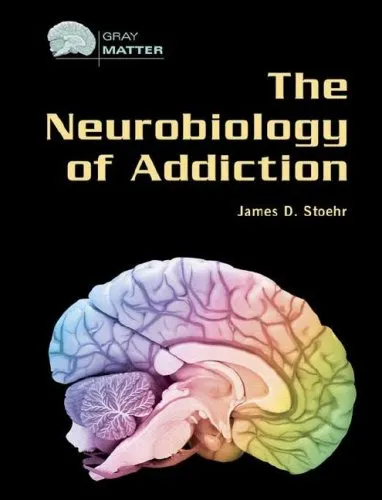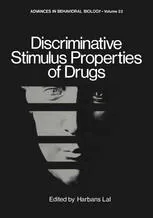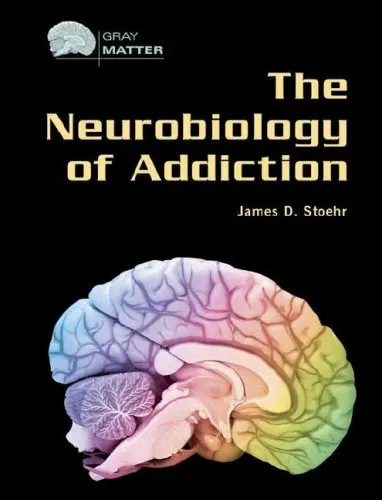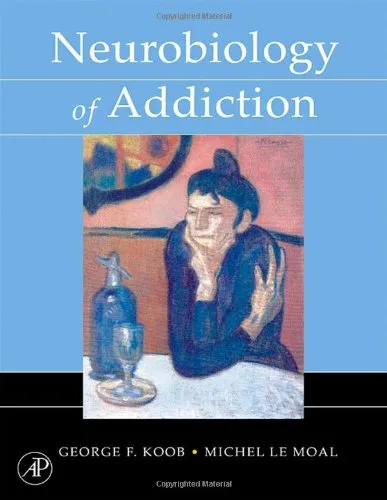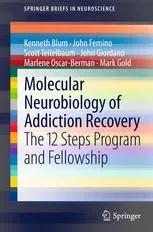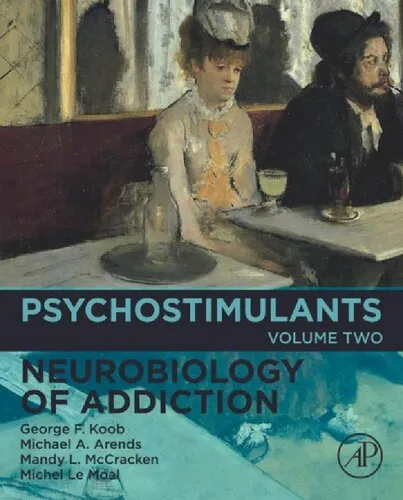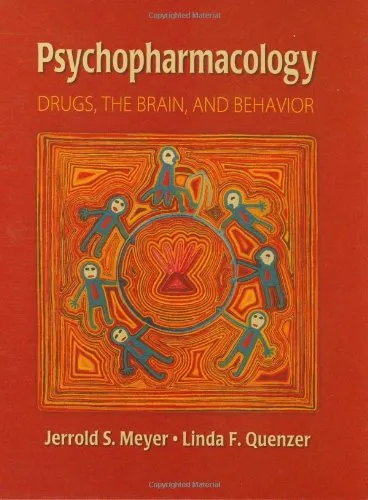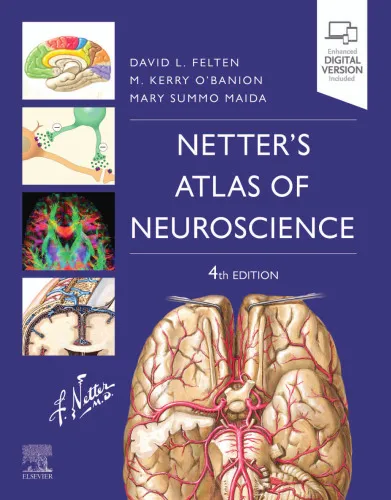The Neurobiology of Addiction (Gray Matter)
4.5
Reviews from our users

You Can Ask your questions from this book's AI after Login
Each download or ask from book AI costs 2 points. To earn more free points, please visit the Points Guide Page and complete some valuable actions.کتاب های مرتبط:
Introduction
Addiction is among the most complex challenges faced by both individuals and societies around the globe, intertwining biology, psychology, and environment into an intricate web of dependency and behaviors. The Neurobiology of Addiction (Gray Matter) delves deeply into the foundational neuroscience that underpins this chronic condition, offering a multidimensional perspective into how the brain is altered by substances and behaviors that lead to addiction. Geared toward both professionals and curious learners, the book provides a comprehensive breakdown of addiction on cellular, molecular, and behavioral levels, balancing dense knowledge with a compelling, reader-friendly narrative.
Written with a strong emphasis on evidence-based research, the book bridges the gap between emerging neuroscience and practical understanding, making it essential for psychologists, clinicians, students of neurobiology, and anyone looking to understand addiction beyond surface-level explanations. Covering everything from the brain's reward system and stress-response circuitry to genetic vulnerability and external influences, this book serves as both an academic guide and a thought-provoking exploration into why addiction arises — and persists.
In the following sections, we’ll walk you through a summary of the book’s core concepts, key takeaways that you will gain, memorable quotes, and why this work is vital in advancing not only our knowledge but also strategies for combating addiction. Whether you are seeking solutions, education, or curiosity-driven insight, this book provides actionable wisdom infused with compassion for the individuals and families affected by addiction.
Summary of the Book
The book begins by framing addiction as a brain disorder rather than a moral failing, emphasizing the importance of understanding the neurochemical and structural changes that drive compulsive behavior. It explores the role of neurotransmitters like dopamine in fostering the "reward-seeking" circuits of the brain, providing a foundation for understanding how drugs and alcohol hijack these mechanisms.
In subsequent chapters, the discussion turns to the prefrontal cortex—the brain's decision-making hub—and its diminished ability to regulate impulsive behaviors among individuals suffering from addiction. Chronic exposure to addictive substances rewires these circuits, creating a feedback loop that drives craving, dependency, and relapse. The interplay between genetic predisposition, early trauma, and environmental stressors is also highlighted, offering a holistic perspective on why some individuals may be biologically or psychologically more susceptible to addiction.
The latter part of the book provides insights into the brain's natural capacity to heal and recover, emphasizing the concept of neuroplasticity: the brain’s ability to reorganize itself through treatment, therapeutic interventions, and time. Finally, it addresses behavioral addictions such as gambling and internet dependency, showcasing similarities and differences in the underlying neurobiology compared to substance abuse.
Key Takeaways
- Addiction is not a failure of willpower but a rewiring of the brain's reward and decision-making systems.
- The brain’s dopamine system plays a crucial role in reinforcing substance use and behaviors, making them compulsive over time.
- Neuroplasticity is key to recovery, making treatment and long-term healing possible through targeted interventions.
- Behavioral and substance addictions often share similar neurobiological mechanisms, blurring conventional distinctions.
- Understanding addiction from a neurobiological perspective helps tackle stigma and fosters more compassionate care for those suffering.
Famous Quotes from the Book
"Addiction is not about the substance or behavior itself; it is about what the brain comes to believe it cannot live without."
"The rewired brain has no morality—it only has needs, cravings, and the singular pursuit of satisfaction."
"To understand addiction is to understand the brilliance—and fragility—of the human brain."
Why This Book Matters
The importance of The Neurobiology of Addiction (Gray Matter) lies in its ability to demystify addiction by presenting it as an illness that can be understood and treated, rather than as a moral failing. By delving into the biology behind addiction, the book equips readers with the knowledge to combat stigma, design more effective treatments, and approach recovery with empathy and science-based strategies.
For clinicians, it serves as a crucial resource to support evidence-based treatment plans, while for policymakers, it underscores the need for science-driven public health approaches. For anyone personally affected by addiction, it offers hope, understanding, and a roadmap to recovery. By exploring how the brain’s circuits are altered—and how they can be healed—this book empowers readers to reframe addiction through the lens of neurobiology, bridging the gap between science and humanity.
Free Direct Download
You Can Download this book after Login
Accessing books through legal platforms and public libraries not only supports the rights of authors and publishers but also contributes to the sustainability of reading culture. Before downloading, please take a moment to consider these options.
Find this book on other platforms:
WorldCat helps you find books in libraries worldwide.
See ratings, reviews, and discussions on Goodreads.
Find and buy rare or used books on AbeBooks.
1287
بازدید4.5
امتیاز0
نظر98%
رضایتReviews:
4.5
Based on 0 users review
Questions & Answers
Ask questions about this book or help others by answering
No questions yet. Be the first to ask!
